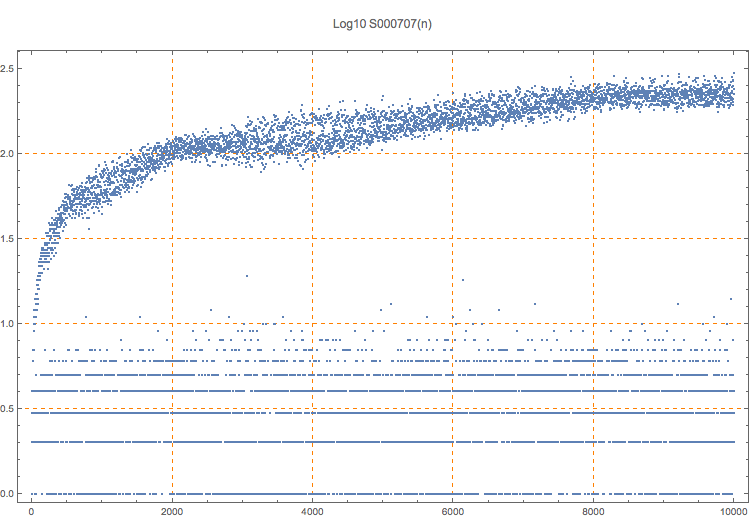Number of palindromic (in base 2) triples that sum to n.
1, 1, 1, 2, 1, 2, 2, 3, 2, 4, 3, 4, 2, 4, 2, 6, 2, 6, 3, 6, 2, 7, 3, 7, 3, 7, 2, 9, 2, 7, 3, 9, 3, 10, 4, 10, 4, 11, 3, 12, 2, 11, 3, 11, 1, 12, 2, 10, 4, 11, 2, 14, 3, 11, 4, 13, 1, 13, 2, 11, 3, 12, 2, 15, 2, 13, 5, 14, 3, 17, 2, 13, 4, 15, 2, 17, 2, 12, 4, 15
0
Because all nonzero palindromic numbers in base 2 are odd, even numbers require an even number of terms. This becomes a problem for 176, 188, 208,… which are the numbers in A261678. Hence, it appears that at least 4 palindromic numbers are required in base 2. That case is addressed in S000708.
T. D. Noe, Plot of 10000 terms
T. D. Noe, Table of 10000 terms
Yu Gao, Represent a natural number as the sum of palindromes in various bases, arXiv 1508.06185 (Aug 24 2015)
(Mma) base = 2; mx = 100; pal = Select[Range[0, mx], (d = IntegerDigits[#, base]; d == Reverse[d]) &]; Table[Length[IntegerPartitions[n, {3}, pal]], {n, 0, mx}]
nonn,base
T. D. Noe, Sep 23 2015
